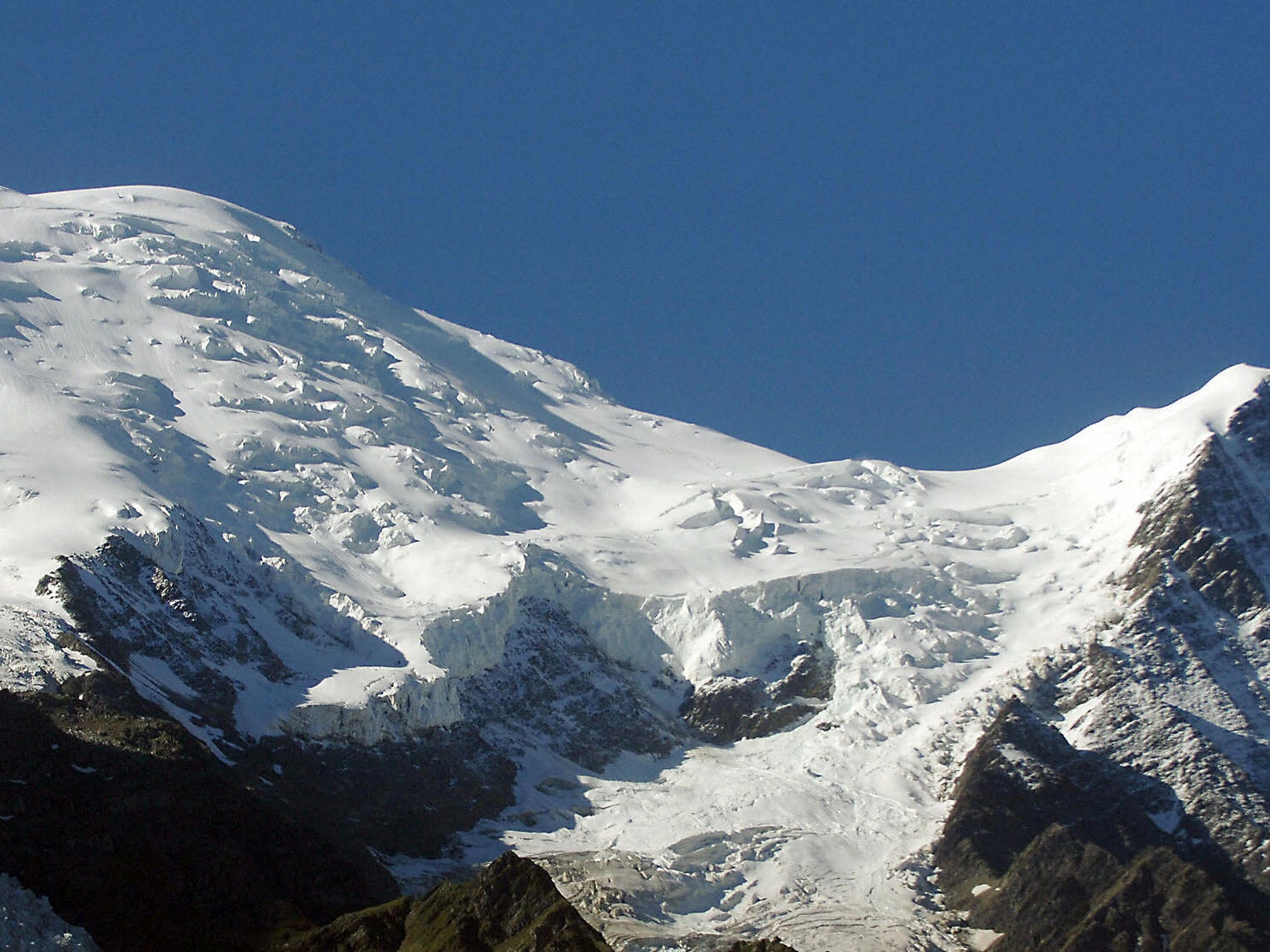Global warming causing record rock falls in the Alps, warns expert
Melting permafrost due to increased summer temperatures appears set to lead to record number of rock collapses

Your support helps us to tell the story
From reproductive rights to climate change to Big Tech, The Independent is on the ground when the story is developing. Whether it's investigating the financials of Elon Musk's pro-Trump PAC or producing our latest documentary, 'The A Word', which shines a light on the American women fighting for reproductive rights, we know how important it is to parse out the facts from the messaging.
At such a critical moment in US history, we need reporters on the ground. Your donation allows us to keep sending journalists to speak to both sides of the story.
The Independent is trusted by Americans across the entire political spectrum. And unlike many other quality news outlets, we choose not to lock Americans out of our reporting and analysis with paywalls. We believe quality journalism should be available to everyone, paid for by those who can afford it.
Your support makes all the difference.A French expert is predicting a record number of rock falls in the Alps this year as rising temperatures, thought to be a result of climate change, cause the permafrost to melt.
A report on the website of French newspaper Le Monde noted that at least 150 rock collapses (described as a rock fall of more than 100 cubic metres) have been recorded on Mont-Blanc, the highest peak in Europe, since the summer began.
The paper quoted Ludovic Ravanel, a researcher at the University of Savoie at Le Bourget-du-Lac, as saying the level is already higher than that recorded during a 2003 heat wave.
This year's high temperatures have already led to some impressive collapses:
According to Mr Ravanel's research, the collapses occur when the permafrost that binds sections of the rock together melts.
His research has shown a strong correlation between the melting permafrost and increased summer temperatures.
The collapses occur late into the year as the summer heat takes time to penetrate the mountain, he said.
Mr Ravanel cautioned that high summer temperatures meant thawing had come earlier this year.
Most collapses occurred below 3,500 meters as above this height the permafrost remains cold enough to keep the rocks in place, Mr Ravanel said.
The collapses pose a danger to climbers in the Alps, about 20,000 of whom tackle Mont Blanc each year, and have seen sections of the Alps, such as the Gouter corridor temporarily closed in the summer months.
Join our commenting forum
Join thought-provoking conversations, follow other Independent readers and see their replies
Comments